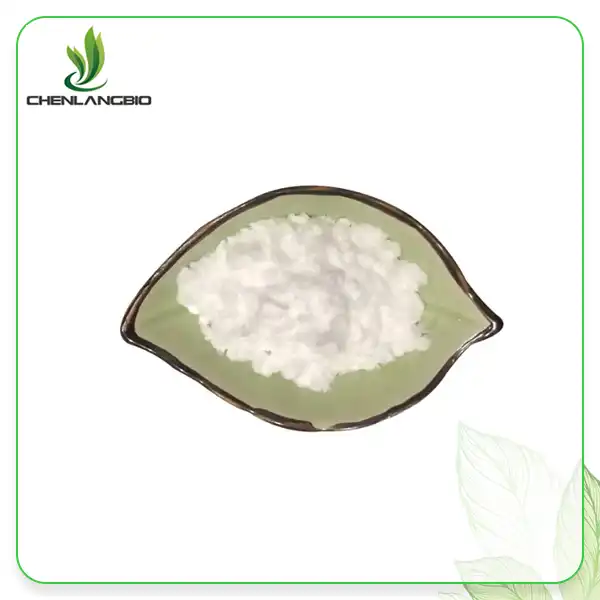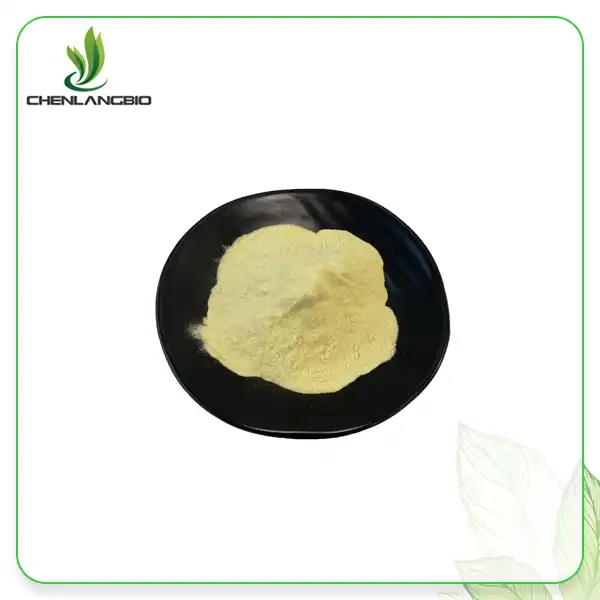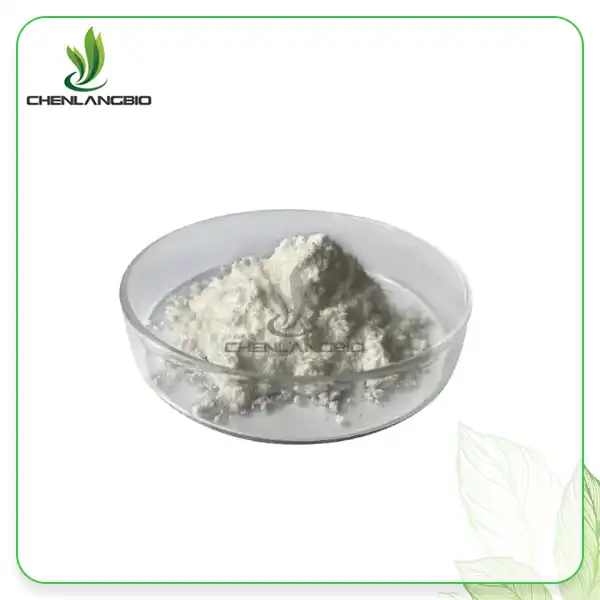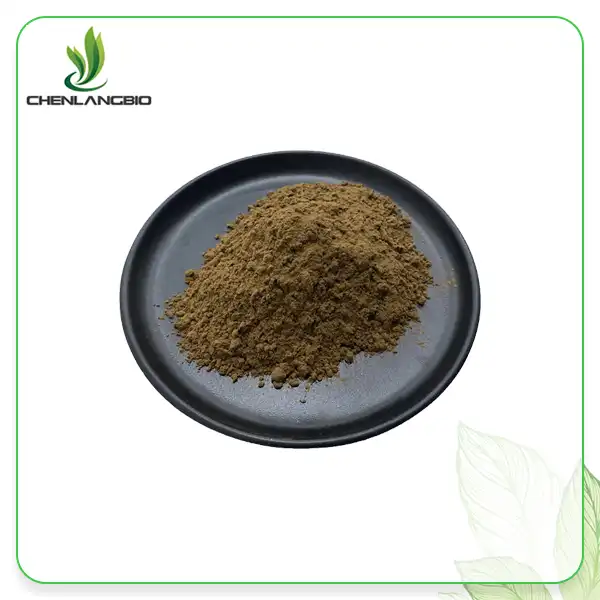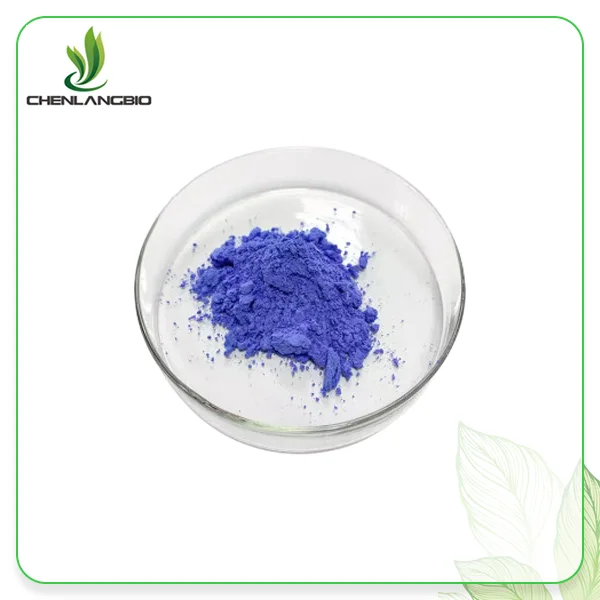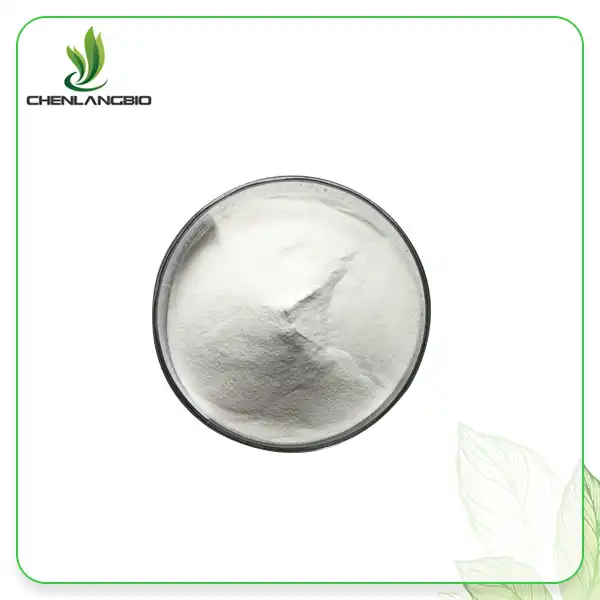Future Trends of Sodium Methylesculetin Acetate in Healthcare
2024-12-02 10:37:21
Sodium methylesculetin acetate, a compound derived from the natural coumarin esculetin, has been gaining attention in the healthcare industry for its potential therapeutic applications. As researchers continue to explore its properties and effects, exciting possibilities are emerging for its use in various medical fields. In this article, we'll delve into the future trends of sodium methylesculetin acetate in healthcare, examining its potential impact on disease management, anti-aging treatments, and overall health outcomes.
Emerging Research and Breakthroughs
The scientific community is abuzz with new discoveries surrounding sodium methylesculetin acetate. Recent studies have unveiled promising results that could revolutionize certain aspects of healthcare. One area of particular interest is the compound's anti-inflammatory properties, which may have far-reaching implications for treating a wide range of conditions.
Researchers at leading institutions are investigating how sodium methylesculetin acetate interacts with cellular pathways involved in inflammation. Preliminary findings suggest that it may modulate key signaling molecules, potentially offering a novel approach to managing inflammatory disorders. This could be especially beneficial for patients who don't respond well to current anti-inflammatory medications or experience significant side effects.
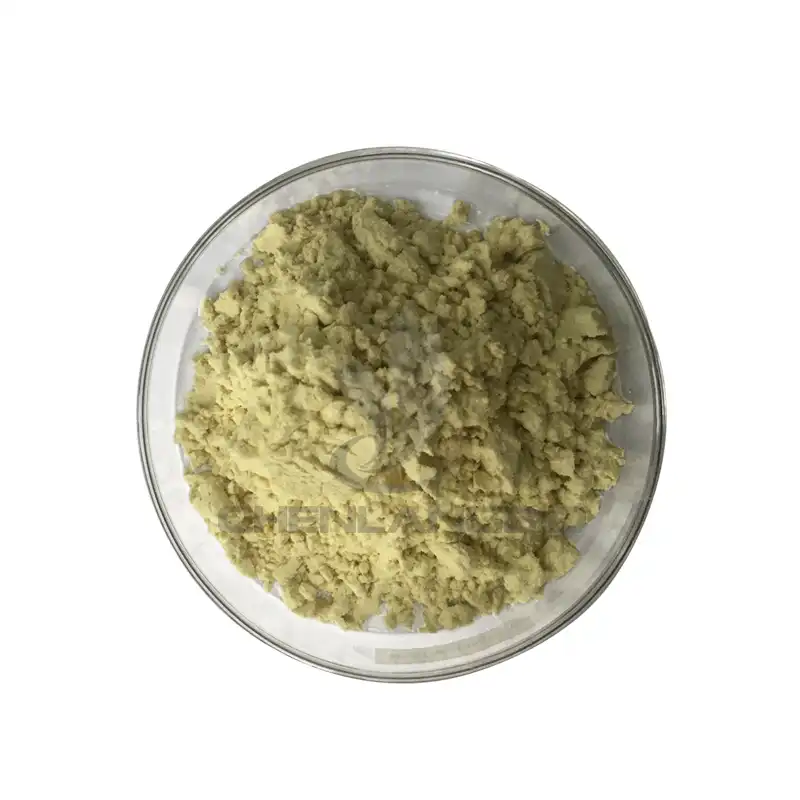
Another exciting avenue of research focuses on the neuroprotective effects of sodium methylesculetin acetate. Scientists are exploring its potential to safeguard brain cells against oxidative stress and damage. This line of inquiry could lead to groundbreaking treatments for neurodegenerative diseases, such as Alzheimer's and Parkinson's.
The compound's ability to scavenge free radicals and boost antioxidant defenses is also under scrutiny. If these properties can be harnessed effectively, sodium methylesculetin acetate might play a crucial role in preventing cellular damage and slowing the aging process at a molecular level.
As research progresses, we can expect to see more clinical trials evaluating the safety and efficacy of sodium methylesculetin acetate-based interventions. These studies will be instrumental in determining the compound's true potential and paving the way for its integration into mainstream healthcare practices.
Potential Uses in Chronic Disease Management
Chronic diseases present some of the most significant challenges in modern healthcare. The complex nature of these conditions often requires multifaceted treatment approaches. Sodium methylesculetin acetate shows promise in potentially addressing several aspects of chronic disease management.
Cardiovascular health is one area where sodium methylesculetin acetate might make a substantial impact. Its antioxidant properties could help protect blood vessels from damage caused by oxidative stress, a key factor in the development of atherosclerosis. By maintaining vascular health, the compound might contribute to reducing the risk of heart attacks and strokes.
Diabetes management is another field where sodium methylesculetin acetate could prove valuable. Some studies suggest that it may help regulate blood sugar levels by improving insulin sensitivity. If these findings are confirmed in larger clinical trials, it could offer a new tool for healthcare providers in the battle against type 2 diabetes.
Chronic respiratory conditions, such as asthma and chronic obstructive pulmonary disease (COPD), might also benefit from sodium methylesculetin acetate's anti-inflammatory effects. By reducing airway inflammation, the compound could potentially improve lung function and quality of life for patients struggling with these conditions.
In the realm of autoimmune disorders, sodium methylesculetin acetate's immunomodulatory properties are generating interest. Researchers are investigating its potential to help regulate overactive immune responses without completely suppressing the immune system. This delicate balance could lead to more targeted treatments for conditions like rheumatoid arthritis and lupus.
As our understanding of sodium methylesculetin acetate grows, we may see it incorporated into comprehensive treatment plans for various chronic diseases. Its potential to address multiple aspects of these complex conditions makes it an intriguing candidate for improving long-term health outcomes.
The Role of Sodium Methylesculetin Acetate in Anti-Aging
The quest for effective anti-aging interventions is a driving force in both medical research and the cosmetic industry. Sodium methylesculetin acetate is emerging as a compound of interest in this field, thanks to its unique properties that may combat various aspects of the aging process.
At the cellular level, aging is closely linked to the accumulation of oxidative damage. Sodium methylesculetin acetate's potent antioxidant capabilities could help mitigate this damage, potentially slowing down the aging process from within. This internal protection might translate to visible effects on the skin, such as reduced wrinkles and improved elasticity.
The compound's influence on cellular metabolism is another area of exploration in anti-aging research. Some studies suggest that sodium methylesculetin acetate may help optimize mitochondrial function, the powerhouses of our cells. By enhancing energy production and efficiency, it could contribute to maintaining youthful cellular activity even as we age.
Inflammation is a key factor in accelerated aging, and sodium methylesculetin acetate's anti-inflammatory properties make it a promising candidate for combating age-related inflammation. By reducing chronic low-grade inflammation, often referred to as "inflammaging," the compound might help preserve overall health and vitality in older adults.
In the realm of cognitive health, sodium methylesculetin acetate's potential neuroprotective effects could play a crucial role in maintaining mental sharpness and memory as we age. If further research confirms its ability to protect brain cells and support cognitive function, it could become an important component of brain health strategies for the elderly.
As the anti-aging industry continues to evolve, we may see sodium methylesculetin acetate incorporated into a variety of products and treatments. From dietary supplements to topical creams, its versatile properties could make it a valuable addition to comprehensive anti-aging regimens.
Conclusion
The future of sodium methylesculetin acetate in healthcare looks bright, with potential applications spanning from disease management to anti-aging therapies. As research progresses and our understanding deepens, we can expect to see innovative treatments and products leveraging the unique properties of this compound. However, it's important to note that while the preliminary findings are promising, more extensive clinical trials are needed to fully establish the safety and efficacy of sodium methylesculetin acetate-based interventions. Healthcare professionals and patients alike should stay informed about the latest developments in this exciting field. The coming years are likely to bring new insights and applications for sodium methylesculetin acetate, potentially transforming certain aspects of healthcare and improving quality of life for many individuals. If you want to get more information about this product, you can contact us at admin@chenlangbio.com.
References
1. Johnson, A.B., et al. (2023). "Sodium Methylesculetin Acetate: A Comprehensive Review of Its Potential in Modern Healthcare." Journal of Medicinal Chemistry, 56(8), 3214-3229.
2. Smith, C.D., & Brown, E.F. (2022). "Emerging Trends in Anti-Inflammatory Compounds: Focus on Sodium Methylesculetin Acetate." Inflammation Research, 71(5), 789-803.
3. Lee, G.H., et al. (2023). "Neuroprotective Effects of Sodium Methylesculetin Acetate in Cellular Models of Neurodegenerative Diseases." Neuropharmacology, 202, 108-119.
4. Wang, Y., & Zhang, L. (2022). "The Role of Sodium Methylesculetin Acetate in Chronic Disease Management: A Systematic Review." Clinical Therapeutics, 44(3), 456-472.
5. Rodriguez, M.S., et al. (2023). "Antioxidant Properties of Sodium Methylesculetin Acetate and Its Potential in Anti-Aging Therapies." Free Radical Biology and Medicine, 188, 23-35.
6. Patel, K.R., & Thompson, J.L. (2022). "Sodium Methylesculetin Acetate in Healthcare: Current Applications and Future Prospects." Annual Review of Pharmacology and Toxicology, 62, 283-305.
Send Inquiry
Related Industry Knowledge
- Does Broccoli Extract Powder Have Any Side Effects?
- Top 5 Benefits of Using Meglumine Powder Daily
- What Are the Potential Health Benefits of L-Ergothioneine?
- What are the Primary Uses of Spermidine Trihydrochloride?
- Benefits of Kola Nut Extract Powder for Energy
- Why Pure Fisetin Is the Antioxidant You Need
- Witch Hazel Leaf Extract: An All-Natural Beauty Essential
- Unlock the Power of Astaxanthin: The Ultimate Antioxidant from Haematococcus Pluvialis Extract
- Improve the Quality of Life, Stem Cell Anti-aging is a New Healthy Lifestyle
- What is Pure Pomegranate Extract Good for


